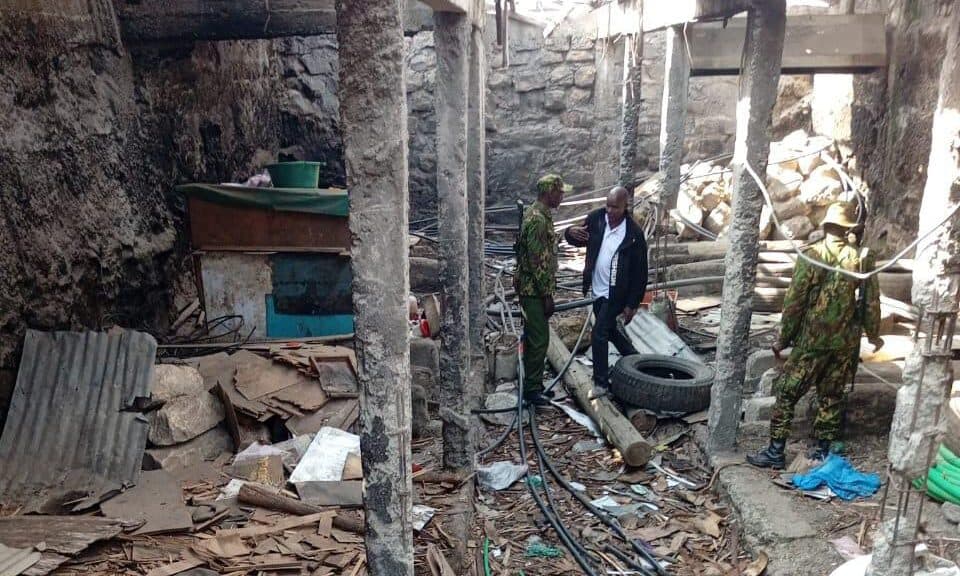We're loading the full news article for you. This includes the article content, images, author information, and related articles.
In an early-morning operation, the National Authority for the Campaign Against Alcohol and Drug Abuse (NACADA), in collaboration with Nairobi Area Police, seized 4,000 litres of illicitly produced chang’aa in Mukuru

Nairobi, Kenya — September 27, 2025 (EAT).
In an early-morning operation, the National Authority for the Campaign Against Alcohol and Drug Abuse (NACADA), in collaboration with Nairobi Area Police, seized 4,000 litres of illicitly produced chang’aa in Mukuru, as part of the government’s intensified crackdowns under its 100-day Rapid Results Initiative (RRI).
The raid was conducted at around 3:00 a.m. on Friday, September 26, targeting suspected distillery and distribution hubs in Mukuru kwa Reuben and Mukuru kwa Njenga settlements.
During the sweep, officers discovered 14 sacks of packaged chang’aa hidden behind a nondescript door and within adjoining rooms. The brew was stored in prohibited nylon materials, violating environmental and public health standards.
Although the alleged main brewing station appeared to have been scaled down—raising suspicions of advance warning—neighbouring rooms revealed the hidden stockpile.
No arrests were made on site; suspects are believed to have fled before the operation.
The confiscated stock was logged and transported to Jogoo Road Police Station. It will be submitted to the Government Chemist for laboratory analysis to support future prosecutions.
NACADA CEO Anthony Omerikwa framed the seizure as a strong signal to the illicit alcohol trade, highlighting that community safety and youth protection are central to the RRI.
He emphasised that the crackdown is not just about confiscations but disrupting entire supply chains—brewers, transporters, and distributors.
The RRI, initiated under Interior Cabinet Secretary Kipchumba Murkomen, has placed alcohol and drug control at the forefront of national security and public health enforcement.
Health & safety: Illicit alcohol is often tainted, causing acute poisoning, long-term health damage, and even death. Removing large volumes from circulation is a public health imperative.
Symbolic leverage: High-volume seizures draw public attention and reinforce the state’s resolve in crime prevention and social protection.
Deterrent effect: If prosecutions follow, this raid could deter others in the illicit brew network.
Operational insight: The sophistication of packaging and hidden stock indicates organized networks; the response must adopt a systematic dismantling approach rather than episodic raids.
How soon will arrests be made and prosecutions initiated?
Are similar operations planned across other Nairobi settlements or counties?
What is the capacity of forensic labs and the judicial system to process and sustain cases?
Will compensation or treatment be extended to victims (e.g. poisoned consumers)?
Has intelligence revealed the supply chains feeding this network (raw materials, transport, retail agents)?
Keep the conversation in one place—threads here stay linked to the story and in the forums.
Sign in to start a discussion
Start a conversation about this story and keep it linked here.
Other hot threads
E-sports and Gaming Community in Kenya
Active 9 months ago
The Role of Technology in Modern Agriculture (AgriTech)
Active 9 months ago
Popular Recreational Activities Across Counties
Active 9 months ago
Investing in Youth Sports Development Programs
Active 9 months ago
Key figures and persons of interest featured in this article